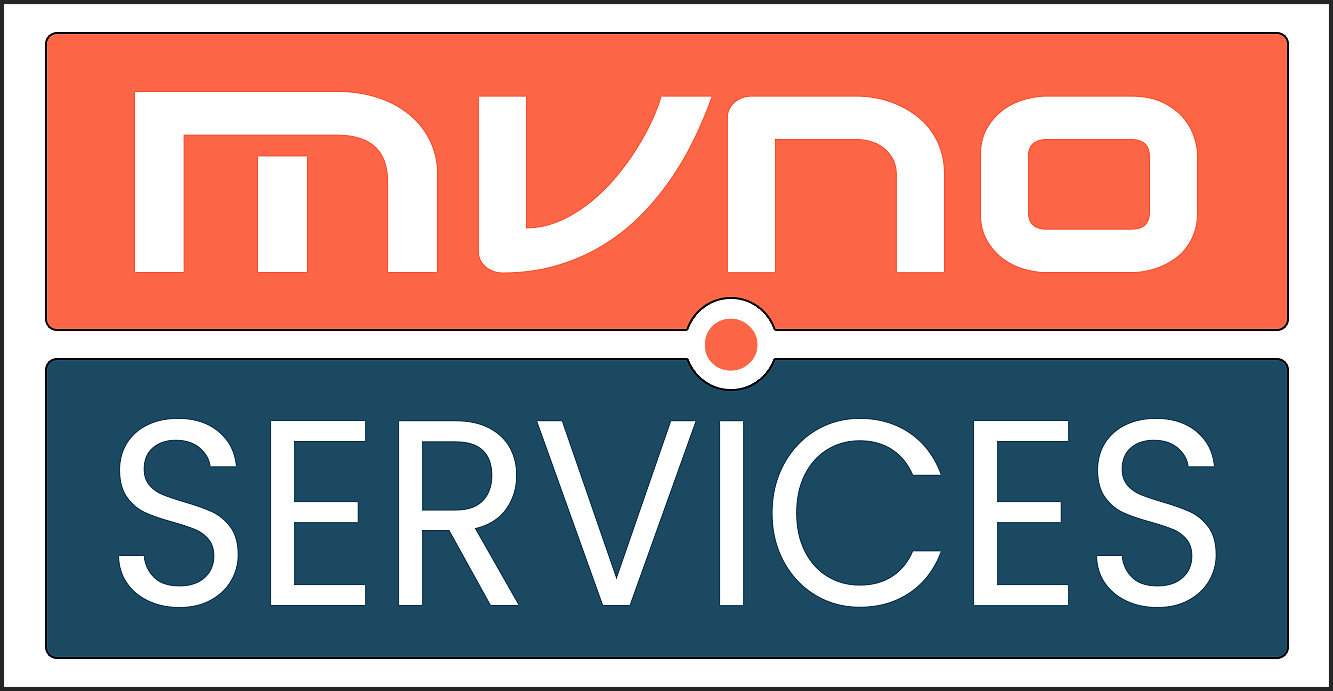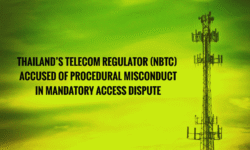NBTC Public Hearing on MVNO Promotion and Spectrum Management
- April 24, 2024
- Posted by: MVNO.SERVICES
- Category: MVNO News

Public hearing on Thailand’s Telecommunication Master Plan: Promotion of MVNOs and an urgent need for a clear spectrum action plan
Thailand’s telecom regulator NBTC, held a public hearing (April 23), on the Telecommunications Master Plan No. 3 (2024-2028) draft, highlighting strategies to “promote competition via MVNOs, reduce digital inequality and protect consumers”.
The Telecommunications Master Plan draft consists of strategies for development in 5 areas:
Strategy 1: Amend the regulations to develop an environment that allows for increased competition, the creation and enablement of MVNOs.
Strategy 2: Reducing the digital divide and promote access to and utilization of a wide range of telecom services to cover both spatial and social dimensions.
Strategy 3: Effective management of telecommunications resources. Efficient frequency allocation Create a spectrum allocation plan (Spectrum Roadmap) for various businesses.
Develop criteria for granting permission to use frequencies in the public sector and frequency bands for general use, in order to be able to allocate spectrum in line with needs and value. Review guidelines for allocation and utilization of frequencies for efficient and cost-effective use.
Strategy 4: Develop the licensing and regulation to suit the digital industrial ecosystem.
Strategy 5: Improve consumer protection in the digital age. Focus on providing consumers with knowledge and understanding of consumer rights in telecommunications business. Strengthen consumer knowhow to be able to protect themselves from threats.
A clear spectrum action plan and improve the ecosystem for MVNOs
The participants at the public hearing included member of the public, representatives from the private sector, and government agency representatives.
Although all five strategies, is on the agenda for the public hearing, most of the participants at the hearing wants the NBTC to make a clear spectrum management plan (Spectrum Roadmap), and urged the NBTC to improve the ecosystem and framework for mobile virtual network operators (MVNO) to bring much needed competition into the market.
Captain Ativat Asvasirayothin, Chair and founder of the MVNO A Telecom Company Limited, expressed the opinion that the MVNO license system should be updated – from only Thin and Medium MVNO – to also include Full MVNO. He also suggested that the NBTC should enforce the regulations and encourage the large operators to allow MVNOs on their networks with the NBTC setting the details on wholesale pricing. “This would keep MVNO costs low enough to be competitive“.
Admiral Prasarn Sukkaset, Chair of the NBTC’s Performance Monitoring and Evaluation Committee said: “Last year, MVNOs declined significantly, as competition in the market was reduced by the True-Dtac merger. We also urge operators to return profits to society from their ability to reduce costs from reduced business competition, and asked for an increase in the market concentration index (HHI), which measures the level of competitiveness in the market”.
Representatives from the Office of the Trade Competition Commission (TCCT), joined in expressing their opinions regarding inequality, noting that inequality is not just in terms of access to telecommunications services. But there are also disparities between entrepreneurs.
“The concern of the TCCT is on competitive pricing standards, because now the big operators can lower their prices but the smaller operators cannot, so the NBTC should create equality in competition.”
Public sector representatives who have worked in the telecommunications industry for more than 20 years also gave their opinion that spectrum frequency plans “need to be more detailed than they used to be, because there is a range of spectrum that is about to expire, and how many new ones will be auctioned?”
In relation to effective management of spectrum frequencies, MVNO representatives urged the NBTC to speed up, and make a clear Spectrum Roadmap, especially in the case of National Telecom’s (NT) spectrum that is about to expire
Since the introduction of telecom licenses and MVNOs in Thailand in 2013, the only operator to allow MVNOs onto its network has been TOT and CAT (Now NT), despite the license conditions of AIS and TRUE/DTAC, clearly stating that they must provide minimum 10% capacity to MVNOs, none of them have ever hosted a MVNO, despite several attempt from both mobile virtual aggregators (MVNA), enablers (MVNE) and operators (MVNO).
Atip Keeratipich, CEO of the MVNO Red One Network (Thailand) said: “We are dependent on NT who is gracious to us. But the 850 MHz, 2100 MHz and 2300 MHz bands held by NT will expire in September 2025. Therefore, we have an urgent need to see an Action Plan including the MVNO’s agenda, and additional time period from the NBTC, because we are not able to make a 5 year business plan. We hope the NBTC will accept and consider this“.
Opinions and Suggestions
Stakeholders, organizations and the public can share opinions and suggestions to the Telecommunications Master Plan No. 3 (2024-2028) draft.
The comment form can be submitted from 2 April 2024 until 16 May 2024 via the following channels:
1) By e-mail: ht.og1769408825.ctbn1769408825@ycil1769408825opmoc1769408825elet1769408825
2) Delivered in person or by registered mail at the following address:
NBTC Office (Office of Academic Affairs and Telecommunications Resource Management)
No. 87 Phahon Yothin Road, Soi 8 (Sailom), Samsen Nai Subdistrict,
Phaya Thai District, Bangkok 10400.
Comment form and more information available at the NBTC’s website
Latest Post
NBTC Accused of Procedural Misconduct in Mandatory Access Dispute
MVNO Services has filed a petition alleging procedural flaws in NBTC handling of mandatory MVNA network access dispute with True Move H
October 24, 2025MVNO Services Comments on NBTC’s MVNO Focus Group Hearing
MVNO Services’ comments to NBTC Focus Group Hearing on MVNO issues, highlighting concerns about lack of competition and regulation
April 26, 2025



